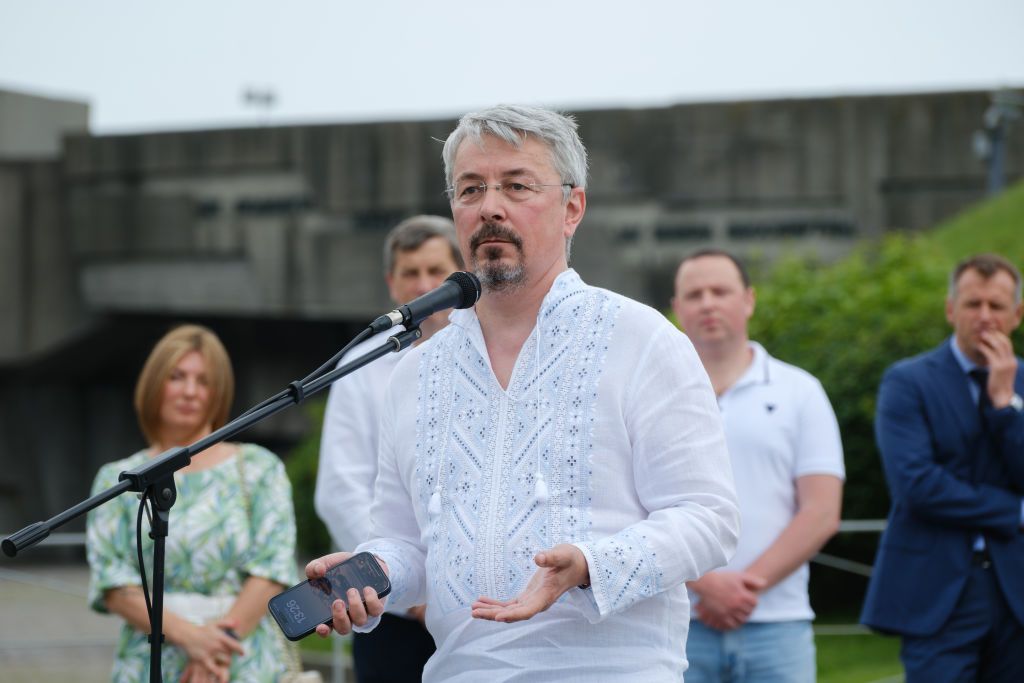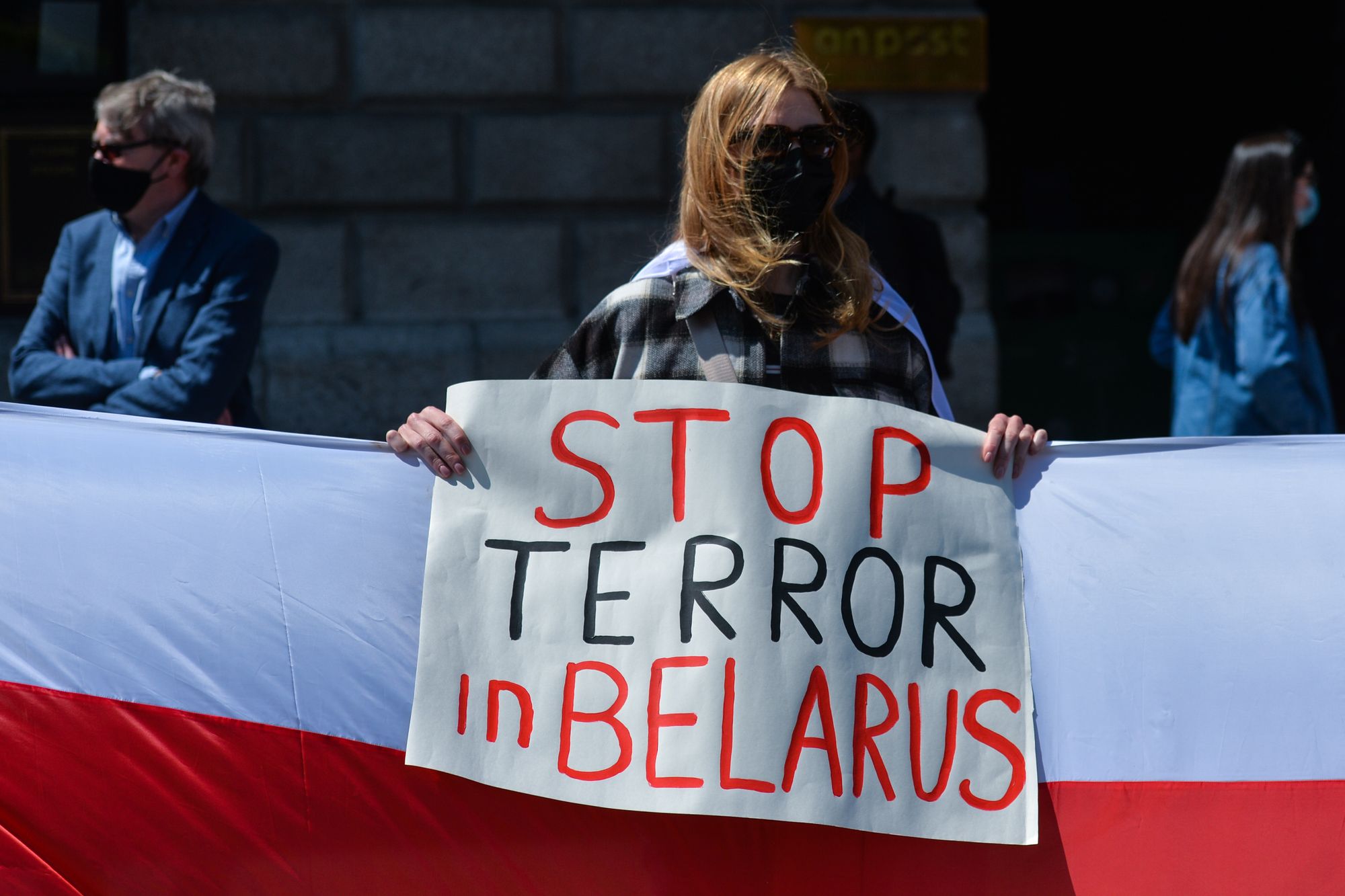Anna Husarska: Expel Russia from UNESCO

ANCHORAGE – Russian President Vladimir Putin has been particularly angry lately, and the Ukrainian port city of Odesa has been suffering the consequences. In the Kremlin’s neo-imperial view, Odesa has long been a symbol of the Russian character of Ukraine’s south, because its initial development was led by Catherine the Great. Last year, Putin himself described it as “one of the most beautiful cities in the world,” with “wonderful traditions and history.” But for Putin’s criminal regime, nothing is sacred.
His fury became apparent on July 17, when he terminated the Black Sea Grain Initiative, a United Nations-backed agreement, signed in July 2022, that enabled Ukraine to export wheat, barley, and other foods from the Port of Odesa, as well as the ports of Chornomorsk and Pivdennyi. The notion that Putin has any say over Ukraine’s ability to export goods that it produces, on its own ships, from its own ports is absurd. But he gets away with it by threatening to behave even more criminally than he already has: the northwestern Black Sea, Russia’s foreign ministry has declared, is “dangerous” again.
That same day, Putin began to rain bombs on Odesa. The missile and drone attacks initially targeted grain terminals and other port facilities, resulting in major economic losses, including the destruction of 60,000 tons of grain. Russian strikes have also been directed at several buildings on Pereulok Nakhimova, a lovely lane located at the end of a fabulous six-mile-long (ten kilometers) tree-lined promenade, often enjoyed by local cyclists like me. From here, Kanatna street – where the Russian poet Alexander Pushkin often visited his friend Ivan Blaramberg – leads to the heart of the city.
The assault shattered the glass of China’s consulate on that lane and damaged the nearby archeological and literature museums. Soon after, Russia destroyed the House of Scientists – formerly the Palace of Count Tolstoy – and 24 other architectural monuments.

On the night of July 22, Russian missiles severely damaged the Transfiguration Cathedral on Soborna Square. It is a place I know intimately: “Soborka,” as locals call the square, is my address when I am in town. But Putin, too, has a kind of connection to it. The cathedral, which was destroyed by Stalin in 1936 and later reconstructed on Odesites’ dime, was consecrated in 2010 by Putin’s (and the KGB’s) collaborator Patriarch Kirill of Moscow, a Russian Orthodox bishop and Ukrainian-killing enthusiast. Unlike most Ukrainian churches, the Transfiguration Cathedral remained tied to the Moscow branch of the Orthodox church.
None of this – not Odesa’s historical and cultural significance, nor Russia’s deep links to the city – means much to Putin. As Kremlin spokesman Dmitry Peskov made clear, all that matters is getting revenge for Ukraine’s drone attack against the Kerch Strait bridge, which links illegally annexed Crimea to Russia. This should enrage all of us – not least the United Nations Educational, Scientific, and Cultural Organization.

As of January, UNESCO’s World Heritage List includes the historic center of Odesa, which contains Pereulok Nakhimova, the charming lane that Russia just attacked. One can find Pereulok Nakhimova on Google Maps, and even take a virtual stroll down it, as it was before the Kremlin’s recent assault. I found it on my old map from 1914, when it was called Baryatinsky. More importantly, it is on the map of the “historic center of the port city of Odesa.” Shouldn’t UNESCO be furious that Russia, a member of the organization since 1954, has bombed it?
Article 6 of the UN’s Convention Concerning the Protection of the World Cultural and Natural Heritage commits the parties “not to take any deliberate measures” that “might damage directly or indirectly the cultural and natural heritage” in other parties’ territory. Surely, no damage can be more deliberate than that caused by targeted missile strikes.
UNESCO has condemned the Russian attacks on Odesa, noting that they took place just two weeks after the strike that destroyed a historic building in Lviv. But it should go further, expelling Russia for as long as the Kremlin continues its criminal behavior. (And that behavior extends well beyond destroying Ukrainian cultural and heritage sites: Lest we forget, Putin has been indicted by the International Criminal Court for war crimes).
There is no legal provision for such a move in UNESCO’s charter. When UNESCO was created, nobody imagined that a distinguished member would invade a neighboring country, murder its people, deport its children, destroy its cities (including those protected by the Convention), and become an international pariah. But this does not mean that a mechanism for ousting criminal states cannot be created. The UN has improvised before.

Ukraine has been part of UNESCO – and the entire UN system – from the very beginning, initially joining alongside the USSR. Russia became a member only after the Soviet Union’s dissolution, and there was never any legal provision for Russia to fill the UN Security Council seat that the Soviet Union had previously occupied. Moreover, unlike Russia, Ukraine has respected all of the agreements associated with its membership in the UN system. There is, in short, a wealth of legal arguments to justify Russia’s expulsion from UNESCO. With Russia attacking Odesa daily, it is time to invoke them.
Editor’s Note: Copyright, Project Syndicate. The following article was published by Project Syndicate on July 31, 2023, and has been republished by the Kyiv Independent with permission. The opinions expressed in the op-ed section are those of the authors and do not purport to reflect the views of the Kyiv Independent.













